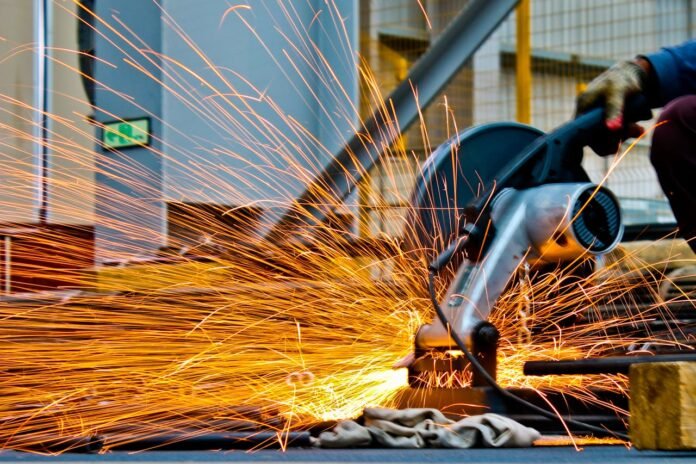In the drive to cut costs, even if you’re regularly moving big items with your vehicle you might consider buying a smaller car (or van) if it doesn’t spend all the time fully laden. A trailer can be a relatively affordable way of transporting heavy, unpleasant or bulky items without needing to buy a large vehicle, and it doesn’t cost anything to tax, is usually covered by your car insurance for occasional use, and often won’t depreciate too much.
When shopping for second hand cars keep an eye out for a pre-fitted towbar or towing kit, not just as a pre-warning that it might have worked hard but also as a benefit, a. quick route to extra versatility around the home – or even, pulling your home away from home if you fancy a caravan. Knowing what weight of trailer or caravan you want to use before buying a car is also vital, as most recommendations are to tow no more than 85% of your car’s weight.
Not all cars are created equal, however. It stands to reason that smaller cars car tow less, but what about the biggest, heaviest vehicles – is there such a thing as too much weight? The combinations of legal weights, safe loading and the size of engine needed to tow comfortably and by the book can be quite confusing.
What does towing capacity mean?
The majority of cars have a specified towing capacity, making it easy to find the maximum weight they can tow safely and, crucially, legally. The weights given are always ‘the total’, be that the maximum authorised mass of the car and occupants, the trailer itself including load, and the overall combination, usually referred to as gross train weight.
Car towing capacity is usually split into a braked trailer weight, and an unbraked trailer weight which will be less than 750kg. Over 750kg, the trailer must have brakes. It should also have brakes if the trailer is more than half the car’s kerb weight, so for many smaller cars, trailers over 500kg should be braked. The kerb weight of the car will be on the vehicle identification plate, in the manual, and may be given elsewhere such as a sticker in the boot if the car has a factory towing option fitted.
Caravans may refer to MAM as MTPLM, which stands for Maximum Technically Permissible Laden Mass. This is the maximum that a caravan is allowed to weigh with all your luggage and furnishings on board, and it’s different to the maximum weight the caravan’s structure can carry because when stopped it has to be strong enough to support occupants as well.
You will also see references to nose weight. This is the weight on the towbar that the hitch and suspension are designed to support safely, and it’s usually 75kg. A badly-laden trailer can put too much weight on the rear axle, or provide lift on bumps, and adversely affect the handling.
Can I tow a trailer on my licence?
If you passed your test after 1 January 1997 you can tow a trailer up to 3,500kg unless you’re in Northern Ireland, where you can tow 750kg, or more as long as the total gross train weight does not exceed 3,500kg. This was the case in the UK before December 2021, but the rules were changed to allow heavier trailers without applying for a B+E certification and will be reflected when you renew your licence.
For drivers who passed before 1 January 1997 the variety of combinations is much wider. You can drive combinations up to a total of 8,250kg, including a minibus + trailer.
Regardless of licence, if you haven’t towed before it’s worth getting some training. Different lengths and types of trailer present different challenges, particularly the small, box type ideal for tip runs and camping that can be completely hidden behind the car.
Important things to remember when towing
- When towing the maximum speed is 60mph on motorways and dual carriageways, and 50mph on single carriage roads
- A trailer should not exceed 2.55m, including arches and marker lights.
- A trailer should not exceed 7m
- When towing a trailer or caravan that’s wider than the car, towing mirrors should be fitted
- When fitting a third-party tow bar to your vehicle, it must meet EU regulations and be designed for use with that car
- If you’ve never towed before, practice reversing, driving around corners and parking with a trailer attached before driving on the road
- You must display the same number plate on your trailer as on your towing car. If you tow more than one trailer at a time, fix the plate to the trailer at the back. This is also a good time to check that all the lights are working correctly
- You can be fined up to £2,500 and have three points put on your licence if you are deemed to be using your car in a dangerous condition. Find out more at gov.uk
What’s the best towing vehicle?
If you need to tow large, heavy loads regularly, the best vehicle is almost always a pickup. They are often designed to safely tow more than they weigh, supported by a strong chassis and suspension. When choosing a family car for towing, diesel automatics will usually offer the easiest experience with lots of torque from low revs, even with smaller SUVs.








